Following on from Autograph’s involvement in the EXPLORERS and Transforming Leadership projects, we are launching Visualising Disability, a new programme led by Autograph, to continue our work supporting neurodivergent and disabled artists. We will be working with a cohort of four artists over the course of two years, to support them in developing their practices and creative careers.
Visualising Disability is an open-ended opportunity, providing the artists with support and budget to develop their practices without the expectation of a fixed outcome.
Keep scrolling to find out more about the artists involved, and stay tuned for further project updates.
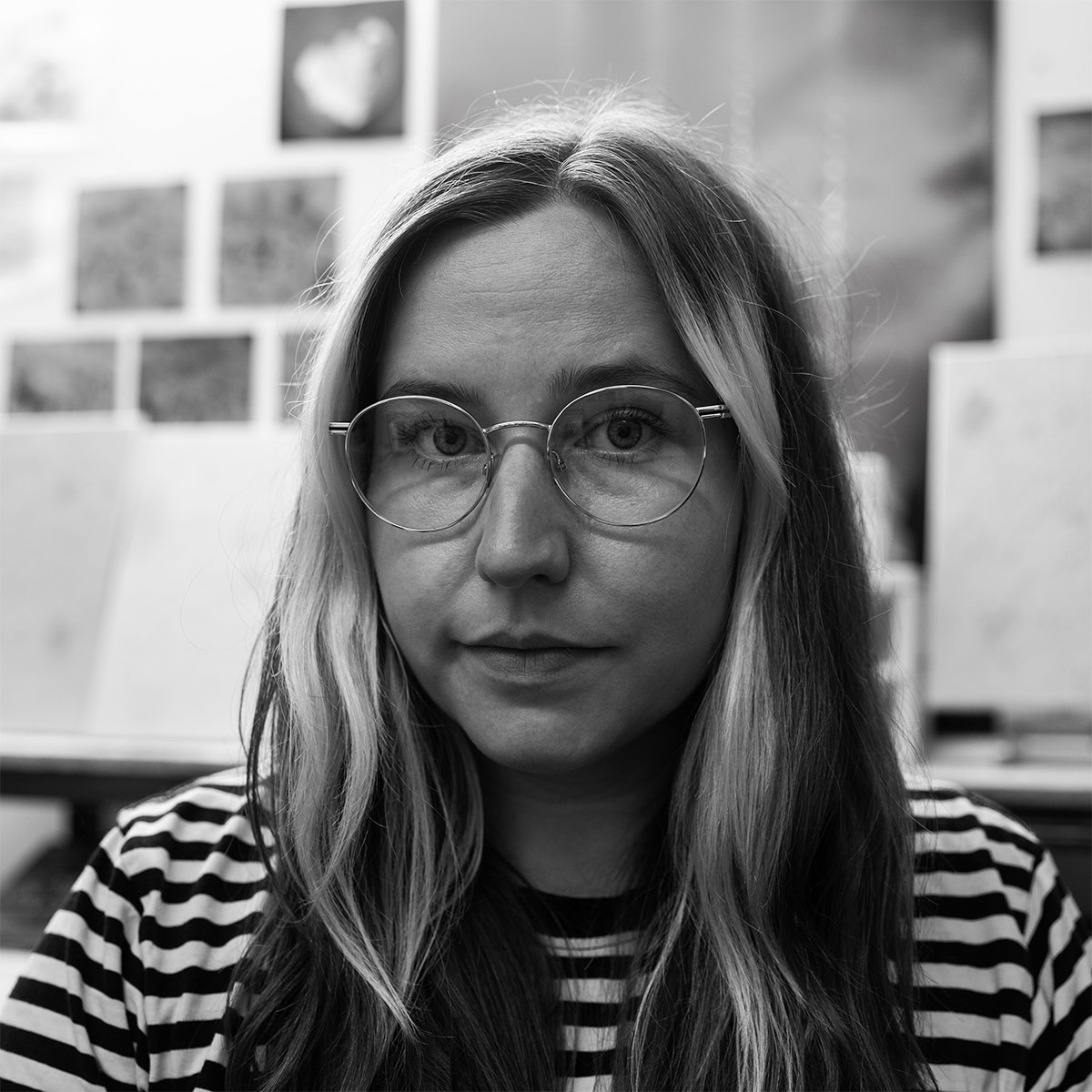
Antonia is a visual artist working with moving image and photography. Antonia's body of work has developed a focus on illustrating and visually interpreting how living with mental and physical illness ‘feels’. Using still, moving imagery and sound, Attwood depicts the phenomenology of illness. Her work explores how it feels for individuals to be vulnerable and overwhelmed in the world living with a medical condition. It is not about communicating a straightforward message, but rather sharing interpretations of experience.
Attwood graduated from London College of Communication with a BA Hons in Photography in 2014 and graduated from her MA in Photography at the Royal College of Art in 2019. She is the Artistic Director at Creative Health Camden, an Arts and health charity based in Kentish Town Health Centre, as well as an associate lecturer at the London College of Communication. To find out more, visit her website.
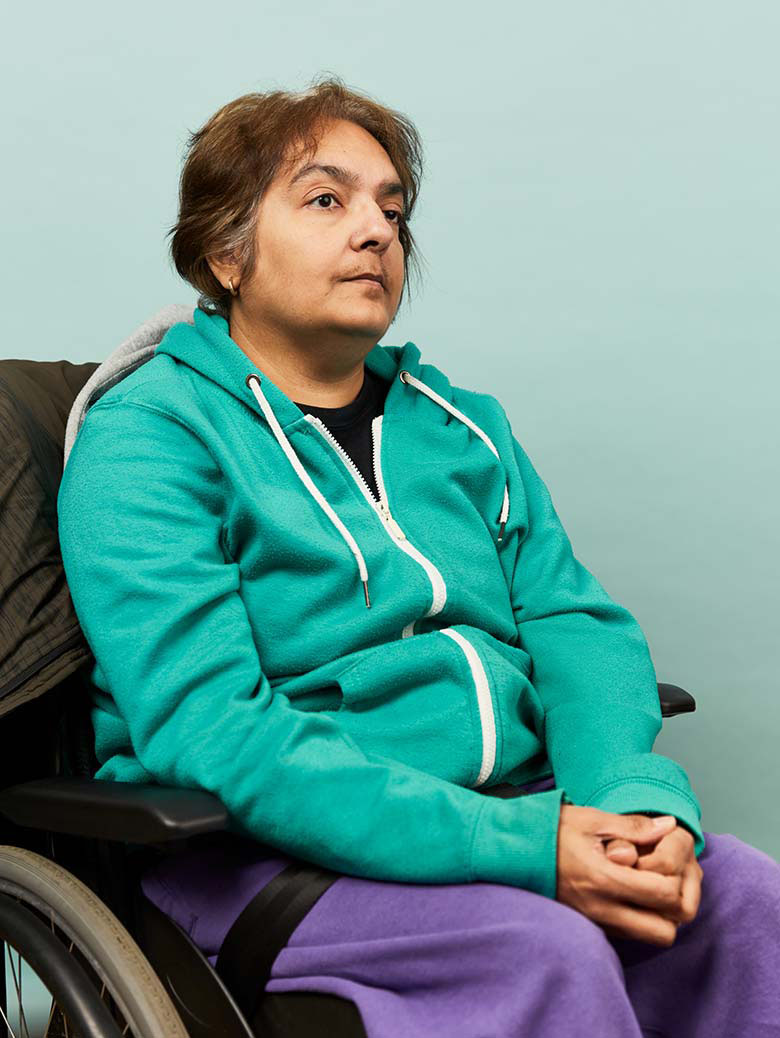
Tirzah is a London-based artist; she has been a member of Headway's Submit to Love Studios for more than 20 years. Mileham’s practice incorporates drawing, mark making and embroidery to explore pattern, fashion and pop cultural references. Her work has featured in exhibitions including: differently various, Barbican, London (2023); Art is Freedom, Rich Mix, London (2022); Common Threads, Autograph, London (2021); Making Faces, Southbank Centre, London (2017).
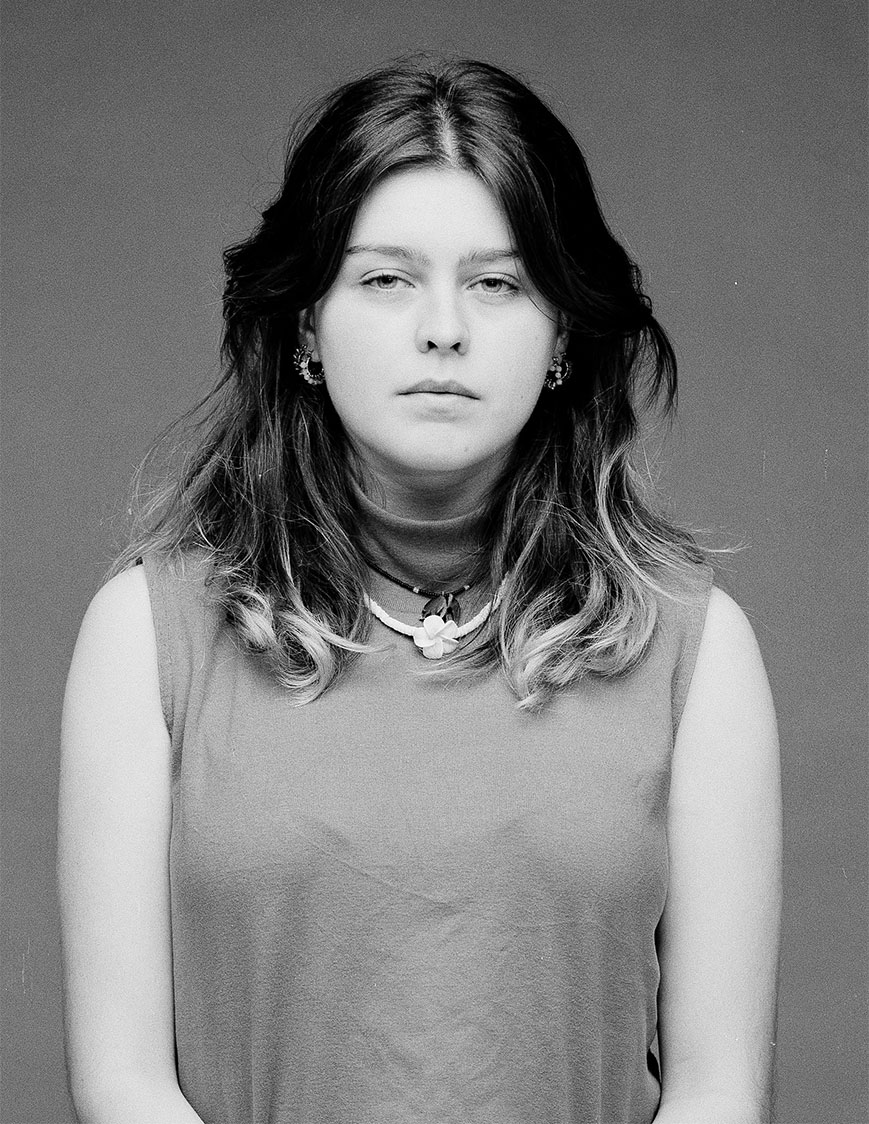
Emily June Smith is a Romford-based neurodivergent visual artist, whose work diverges from traditional documentary photography to delve into personal and social contexts. She graduated from Falmouth University in 2024 and is a founding member of Zinnia Collective.
Smith’s artistic journey is profoundly influenced by her own experiences of living with a neurological disability. This personal history fuels her passionate commitment to amplifying the voices of misunderstood and underrepresented communities, shining a light on topics that often remain under explored. You can see more of Smith's work on her website.
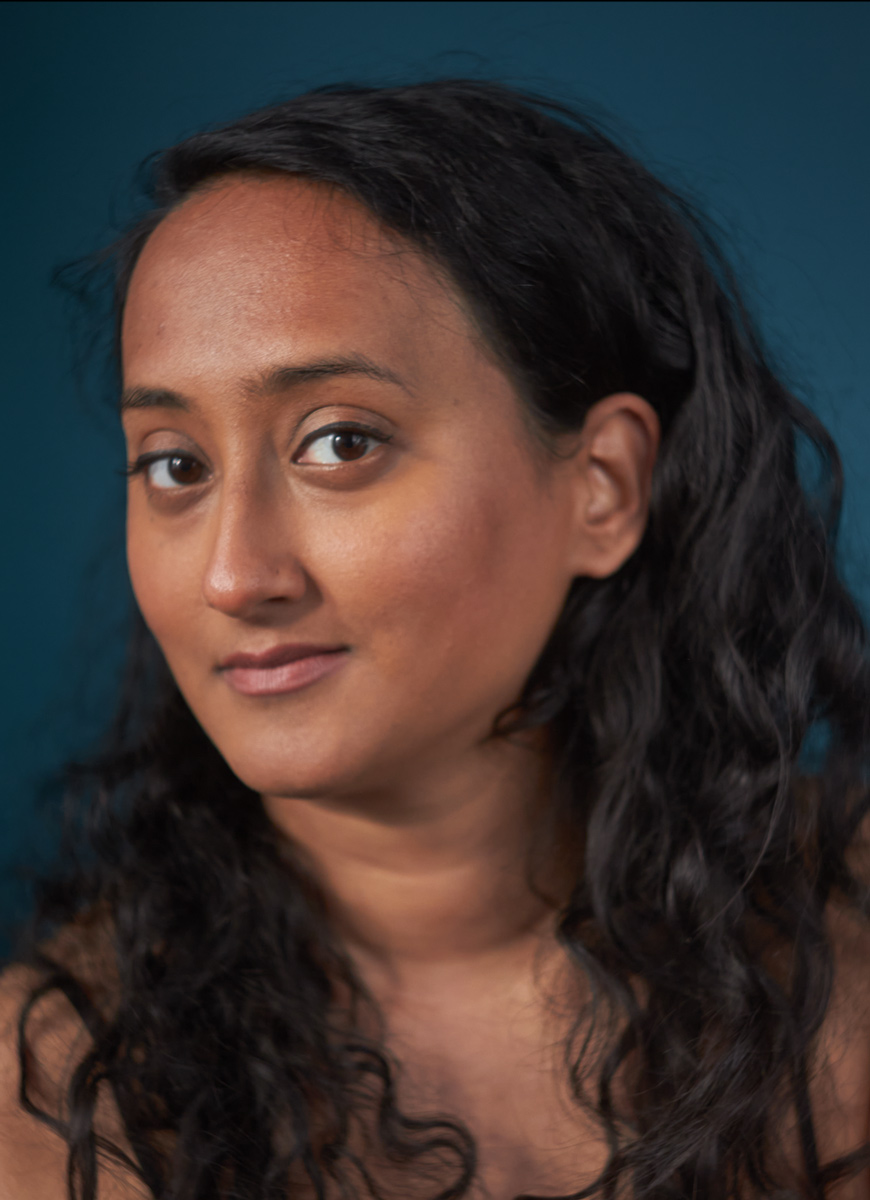
Sabrina is a British Mauritian visual artist based in London, working across collage, digital illustration, generative AI art, graphics, film and photography. Her artistic practice is a reflection of her diverse background, weaving together her rich cultural heritage and personal experiences. Rooted in her family history in Mauritius and influenced by the impacts of colonialism, Tirvengadum’s art explores the intricacies of identity, relationships and the human experience.
With a background in Photographic Arts from the University of Westminster and years of experience as a graphic designer, Tirvengadum’s artistic journey is one of continuous exploration and growth. As the founder of We’re All Human, Tirvengadum strives to promote inclusivity in digital spaces, using her art as a powerful tool to challenge and disrupt ableist systems in both her culture and Western society. To find out more, visit her website.
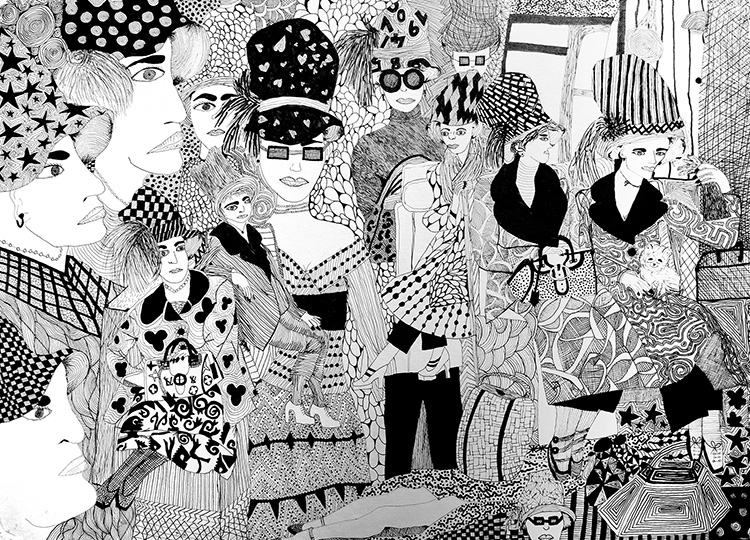
Explore work made by the four artists involved in the new artist development programme.
See moreBanner image: detail from Skin Cell #1 by Antonia Attwood, 2022.
Images on page: 1) Antonia Attwood, courtesy of the artist. 2) Image of Tirzah Mileham by Leon Foggitt, from the series The Artists. Courtesy of Submit to Love Studios / Headway East London / Leon Foggitt. 3) Emily June Smith, courtesy of the artist. 4) Sabrina Tirvengadum, courtesy of the artist.
Discover more image: Tirzah Mileham, Hats for Sale, 2020, courtesy of the artist and Submit to Love Studios / Headway East London.
Autograph is a space to see things differently. Since 1988, we have championed photography that explores issues of race, identity, representation, human rights and social justice, sharing how photographs reflect lived experiences and shape our understanding of ourselves and others.